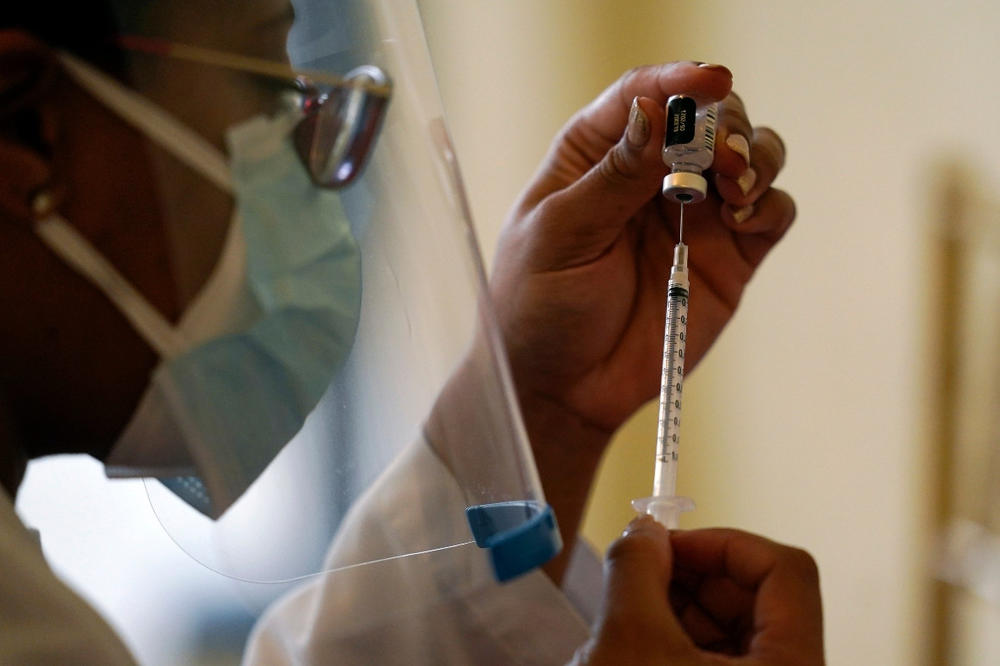
Caption
A Walgreens pharmacist prepares a syringe with the Pfizer-BioNTech COVID-19 vaccine.
Credit: AP Photo/Lynne Sladky, File

A Walgreens pharmacist prepares a syringe with the Pfizer-BioNTech COVID-19 vaccine.
There are currently 351 cases of the B.1.1.7 variant and 15 cases of the variant first discovered in South Africa across the state, Georgia Department of Health Commissioner Dr. Kathleen Toomey said this week.
The state’s first reported case of COVID-19 variant B.1.1.7, which is the same variant discovered in the United Kingdom in September 2020, was discovered in January during analysis of a specimen sent by a pharmacy in Georgia to a commercial lab.
The 18-year-old man who tested positive had not traveled abroad and isolated at home, DPH previously said in a statement.
MORE: Georgia's First Reported Case Of COVID-19 Variant Detected In 18-Year-Old
Also, Georgia has its first case of the Brazilian variant of the coronavirus, which was detected in Newton County.
The North Central Health District said on Wednesday that five cases of the B.1.1.7 variant were discovered in Houston and Putnam counties.
NCHD Director of Epidemiology, Community Assessment and Research Initiatives Amber Erickson said variant testing is limited and not all positive tests are screened for variants.
“As we continue to document additional variant cases I our area, it’s important to keep in mind that there are likely more unidentified cases in our communities,” Erickson said.
The B.1.1.7 variant spreads faster than SARS-Cov-2, which is why it is so essential for people to be aware of and follow public health guidelines.
All COVID-19 vaccines currently available in the U.S. by emergency use authorization provide some level of protection against the known COVID-19 variants.
“However, until there is more data, we will not know just how effective the vaccines are against the variants,” Erickson said.
Public health officials recommend following these actions to help prevent the further spread of COVID-19, including variants: